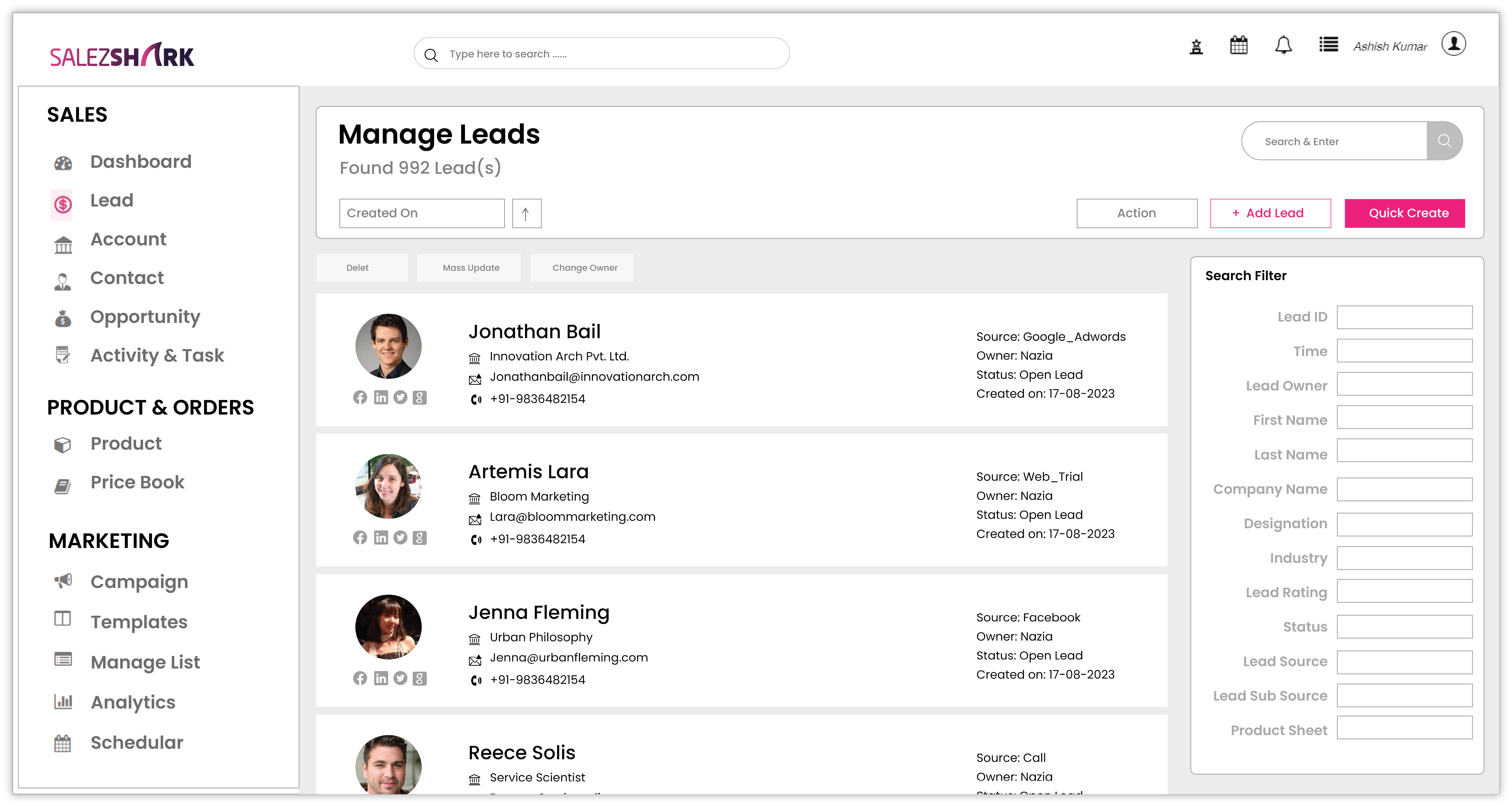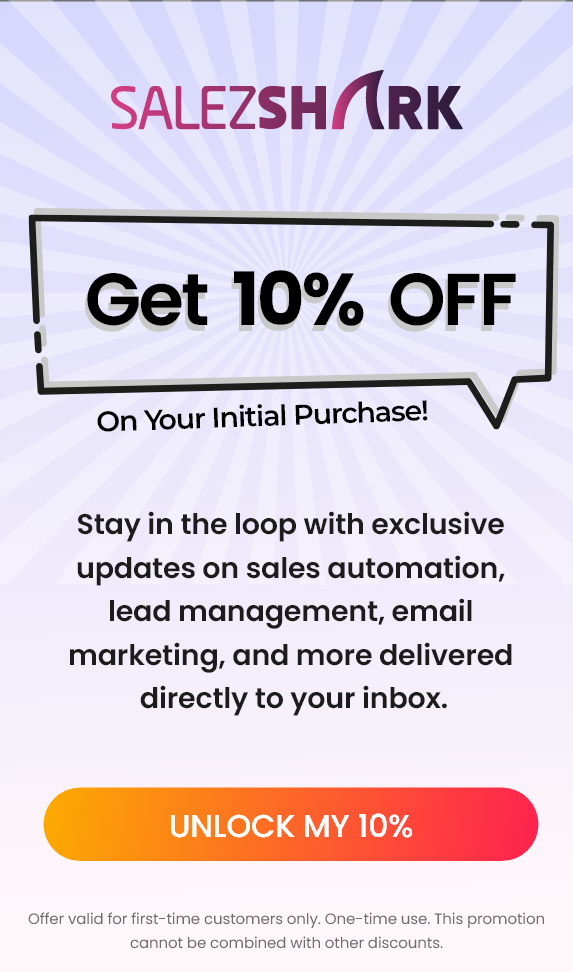2023 offers a wealth of great possibilities for lead management software in the quickly changing world of digital marketing. Businesses that want to maximize conversions and turn prospective customers into paying customers must manage their leads effectively. This article walks you through the nuances of lead management software and provides a detailed overview of the lead management tools and its benefits. Whether you’re a small business owner, a sales professional, or a marketing enthusiast, lead management is an essential & systematic process of turning leads, often known as potential consumers, into happy clients.
Lead Management Software: what is it?
The capture, tracking, and nurturing of leads along the sales funnel may be streamlined and optimized with the help of lead management software. Creating leads is only the first step toward success in the cutthroat business environment of today. To turn those leads into paying clients, it’s essential to handle them well. A consolidated platform made available by lead management software allows firms to manage their leads effectively.
Lead management software is fundamentally a digital center that compiles and arranges all lead-related data. The program gathers and maintains useful information on leads, such as contact information, demographic information, and interaction history. It lets companies to gather leads from numerous channels, including landing pages, social media, and other marketing initiatives, as well as website forms.
Businesses may automate lead scoring, a process that gives each lead a numerical score depending on their level of engagement and purchase readiness, with the help of lead management tools. As a result, leads are prioritized and efforts are concentrated on the most promising opportunities. Through individualized and targeted contact, the program also facilitates lead nurturing. Businesses may develop and automate email campaigns, send reminders, and monitor interactions to deliver pertinent material.
Lead management software also provides powerful analytics and reporting features. Businesses may monitor key performance indicators, track lead behavior, and assess the success of marketing initiatives. These revelations assist in honing lead generation tactics, maximizing marketing initiatives, and raising overall conversion rates. Lead management software also provides powerful analytics and reporting features.
In conclusion, B2B lead management software enables organizations to efficiently gather, track, and nurture leads, thereby improving the likelihood that they will become paying customers. Businesses may increase efficiency, strengthen client connections, and stimulate revenue growth by streamlining lead management procedures.

What Advantages does Lead Management Software offer?
Numerous advantages provided by SalezShark lead management software have a big impact on how well a company can manage and convert leads. The main benefits are as follows:
- Streamlined Lead Nurturing and Personalization: Companies may send individualized and focused communications to their leads thanks to lead management software. Businesses can segment leads based on many factors, like demographics, interests, or behavior, to better target their messaging and content to each lead’s unique requirements and preferences. This degree of personalization boosts the likelihood of conversions by fostering a sense of trust and credibility. Businesses may nurture leads and increase engagement by providing them with current and pertinent information as they progress through the buying process.
- Improved Lead Tracking and follow-up: Businesses can actively monitor lead activities and track their progression through the sales funnel with the help of lead management software. Every interaction and touch point is recorded by the platform, which provides sales teams with real-time insight into lead engagement. This visibility enables prompt follow-ups, ensuring that no lead is overlooked. Businesses can boost conversion rates and encourage client loyalty by swiftly attending to the demands of leads and cultivating relationships.
- Personalized and Efficient Lead Nurturing: Lead management software offers a single platform for storing and managing lead data, which improves lead organization. By doing this, the inconvenience of manual data entry and the possibility of information loss are removed. Businesses can simply access and update lead details, monitor interactions, and get a complete picture of each prospect by centralizing all lead-related data in one location. This centralized method facilitates effective lead organization, ensures data accuracy, and reduces duplication.
- Efficient Lead Scoring and Prioritization: The sales teams may concentrate on high-potential prospects thanks to an automated approach that helps prioritize leads. In order to ensure a smooth transition from leads created by marketing to opportunities that are qualified by sales, lead scoring also aids in bridging the gap between the marketing and sales teams. By locating the most qualified prospects, maximizing their sales efforts, and raising overall conversion rates, businesses can deploy resources more effectively.
- Decision-making and Analytics that are Driven by Data: Lead management software has powerful analytics and reporting features that offer insightful data on lead performance and campaign efficiency. Through the use of such information, firms may improve their plans, pinpoint problem areas, and streamline their lead management procedures. To assess the effectiveness of their lead generation initiatives, businesses should monitor key indicators including conversion rates, lead sources, and campaign ROI. By utilizing actionable data, businesses can continuously improve their lead generation and conversion methods, resulting in sustainable growth.
Benefits of lead management software include better lead tracking and organization, as well as customized lead nurturing, effective lead scoring, and data-driven decision-making. Businesses may increase lead conversion rates, streamline lead management procedures, and ultimately spur business growth by utilizing the potential of lead management software.
How do you pick the right B2B Lead Management Software?
The best lead management software for your company should take into account a number of important factors. These elements will make sure that the software you select meets your unique requirements and enhances your lead management capabilities. The following are the main things to remember:
- Capabilities and Functionality: Evaluate the lead management software’s capabilities and functionalities. Think about particular features you need, including lead tracking, lead nurturing, automation, analytics, and reporting. Make sure the software offers the resources needed to manage leads in an efficient manner throughout the customer journey. Look for features that support your company’s goals and improve lead management procedures.
- Flexible & Scalable: Take into account the lead management software’s capacity to scale as your company expands. Examine the software’s capacity to manage rising lead quantities and accommodate your growing business. Additionally, consider how adaptable the software is for modification and system integration. Your changing business needs can be accommodated by a scalable and adaptable solution, which can also effortlessly interact with your current tech stack.
- Ability to integrate: Assess the lead management software’s capacity for integration. Take into account how well it integrates with your current systems, including CRM applications, email marketing platforms, and other marketing automation technologies. Integrating systems seamlessly enables effective data transmission, streamlines procedures, and improves teamwork. Integration capabilities provide a single view of your leads and customer interactions and a coherent ecosystem that removes data silos.
- Information Protection and Security: When selecting lead management software, data security is essential. To safeguard your lead data and protect private client information, make sure the software complies with industry best practices. Analyze the security precautions taken by the software vendor, including data encryption, access limits, and adherence to applicable data protection laws (such as the GDPR).
- Efficacy and User Experience: Take into account the lead management software’s usability and user experience. Check the software’s usability and intuitiveness because this will affect adoption and productivity. Drag-and-drop interfaces, dashboards that are easily customizable and simple navigation are all desirable qualities. A user-friendly program minimizes the learning curve, enables quick team onboarding, and improves overall productivity.
- Assistance with Customers and Training: Evaluate the quality of training and customer assistance provided by the software provider. A dedicated support crew, internet tools, and thorough documentation are all desirable. Strong customer service guarantees rapid assistance in the event of any problems or inquiries. Your staff can also benefit from training materials and webinars to fully leverage the features of the program.
You can make an informed decision when picking the best lead management software for your company by taking into account these considerations. You may handle leads effectively, cultivate customer connections, and promote significant business growth with a solution that is in line with your particular goals and expectations.

